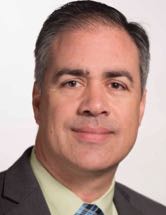Other Track AgendasCirculating DNA, Circulating RNA, Circulating Tumor Cells, Circulating Proteins | Exosomes and Microvesicles: Research, Biomarker Cargo and Therapeutic Potential | RNA-Seq, Digital PCR, and Liquid Biopsies: Capturing Value from Circulating Biomarkers |

Monday, 21 March 201608:00 | Conference Registration, Materials Pick- and Continental Breakfast in the Exhibit Hall | |
Session Title: Opening Plenary Session |
| | |
Plenary Session Chairman: John Palma, Ph.D. |
| | 09:00 |  | Keynote Presentation Clinical Performance of Liquid Biopsy Based Detection of EGFR Mutations in NSCLC
John Palma, Chief Medical Officer, Roche Sequencing Solutions, United States of America
|
| 09:30 |  | Keynote Presentation Microfluidics to Enable the Single Cell Analysis of Circulating Tumor Cells for Personalized Treatment
Chwee Teck Lim, NUS Society Chair Professor, Department of Biomedical Engineering, Institute for Health Innovation & Technology (iHealthtech), Mechanobiology Institute, National University of Singapore, Singapore
Cancer diagnosis and treatment are often hindered by the complexity of
tumor heterogeneity. Here, we developed a microfluidic biochip that is
able to select any circulating tumor cell(s) of interest for downstream
molecular analysis to probe their heterogeneity so as to obtain patient
derived information for the personalized treatment of cancer patients. |
| 10:00 |  | Keynote Presentation New Dimensions of Extracellular Vesicles – Cell Biopsies and Therapeutic Vehicles
Xandra Breakefield, Professor, Mass General Hospital (MGH)/Harvard Medical School, United States of America
The contributions of EVs to medicine continues to expand. These vesicles are virtual biopsies of living cells in the body that report on their dynamic physiology through an array of proteins, DNA and RNA. This array is unique to EVs and accessible through biofluids, with profiles informative for different disease states and response to therapy. These vesicles can also be used as stealth vehicles to deliver bioactive agents, including drugs and genes. Their innate stability in vivo, robust loading capacity and ability to achieve efficient delivery to different tissues expands therapeutic modalities.
|
| 10:30 | Coffee Break and Networking in the Exhibit Hall | 11:00 |  | Keynote Presentation Integrated Microfluidic Systems for the Isolation of CTCs, cfDNA and Exosomes
Steve Soper, Foundation Distinguished Professor, Director, Center of BioModular Multi-Scale System for Precision Medicine, The University of Kansas, United States of America
|
| 11:30 |  | Keynote Presentation Will the Liquid Biopsy End FFPE Biopsy Testing to Guide Therapeutic Decisions for Patients with Cancer?
Phil Stephens, Chief Scientific Officer, Foundation Medicine, United States of America
There is tremendous excitement about the potential of “the liquid biopsy” to identify targeted therapeutic options for patients with cancer. However, for many tumor types, significant and likely insurmountable challenges exist that currently exclude the liquid biopsy as an appropriate diagnostic specimen. This seminar will give a comprehensive overview of the complexities physician’s face in selecting the appropriate diagnostic assay to maximize treatment options for their patients. |
| 12:00 |  | Keynote Presentation New Approaches for CTC Subpopulation Profiling
Shana Kelley, Professor, University of Toronto, Canada
|
| 12:30 | Networking Lunch, Discussions with Exhibitors and View Posters | |
Session: Leveraging Circulating Biomarkers to Develop Liquid Biopsies in Cancer and Beyond |
| | 14:00 | Tumor-Educated Platelets: A Biomarker Source for Molecular Cancer Diagnostics -- Platelet-based Liquid Biopsy
Bakhos A. Tannous, Associate Professor of Neurology, Massachusetts General Hospital and Harvard Medical School, United States of America
Tumor-educated blood platelets (TEPs) are implicated as central players in the systemic and local responses to tumor growth, thereby altering their RNA profile. In this presentation, we will discuss the potential use of TEPs for pan-cancer, multiclass cancer, and companion diagnostics, enabling clinical advances in blood-based "liquid biopsies". | 14:30 | Plasma Exosome Biomarkers of Immune Activation in HIV Patients on Antiretroviral Therapy
Dana Gabuzda, Professor of Neurology, Dana-Farber Cancer Institute and Harvard Medical School, United States of America
This presentation will discuss the analysis of plasma exosome protein and miRNA cargo from HIV patients with virological suppression on antiretroviral therapies and identification of exosome cargo correlating with clinical markers of immune activation. | 15:00 | Novel Approaches for Increasing Sensitivity and Specificity of Molecular Diagnostics Assays Following Mutation Enrichment
Mike Makrigiorgos, Professor, Dana-Farber Cancer Institute/Harvard Medical School, United States of America
Detecting rare mutations in clinical samples and liquid biopsies requires methods having highly increased sensitivity while retaining excellent specificity. We developed novel methods that provide mutation enrichment either prior to PCR or during PCR and enable established methodologies for detecting mutations at 0.1-0.01% levels or below. We present the advantages of combining a novel approach, NaME (Nuclease-assisted Mutation Enrichment) with COLD-PCR, digital PCR, high resolution melting or sequencing. | 15:30 | Coffee Break and Networking in the Exhibit Hall | 16:00 | DNA Sequencing of Clinical Plasma Samples to Identify Markers of Response and Resistance in Lung and Breast Cancer
Brian Dougherty, Executive Director, Translational Genomics, Oncology IMED, AstraZeneca R&D, United States of America
| 16:30 | Clinical Utility and Deployment of CTCs
Mark Connelly, Chief Industrial Operations and R&D Officer, U.S., Menarini Silicon Biosystems, Inc., United States of America
| 17:00 | Addressing the Challenges Confronting Molecular Tumor Profiling By Demonstrating Clinical Utility of ctDNA
John F. Beeler, Vice President, Business Development, Inivata Ltd., United Kingdom
Harnessing the potential of circulating cell-free tumour DNA (ctDNA) from blood as a source of a liquid biopsy is a “game-changer,” as it ushers in a new generation of molecular applications poised to impact the major aspects of a patient’s care including treatment stratification and response monitoring. This liquid biopsy approach offers the opportunity to improve and/or resolve many of the limitations inherent in current molecular tumor profiling approaches This presentation will address the current challenges associated with molecular tumor profiling and propose how these limitations can be overcome by employing a proprietary technology based on tagged-amplicon sequencing (TAm-Seq) to analyze ctDNA and address critical clinical decision points for enhance personalized medicine applications. | 18:00 | Networking Cocktail Reception for All Delegates, Speakers, Sponsors and Exhibitors | 19:30 | Close of Day 1 of the Conference. Extracellular Vesicles Dinner Short Course Begins. |
Tuesday, 22 March 201607:30 | Morning Coffee, Breakfast Pastries, and Networking | |
Session Title: The Expanding World of RNA-Seq, Liquid Biopsies and Precision Medicine |
| | 08:00 | Single cell RNA-sequencing of Circulating Tumor Cells
David Ting, Assistant Professor Of Medicine, Harvard Medical School, United States of America
Circulating Tumor Cells (CTCs) are thought to be enriched for the precursors of metastasis. The detection of CTCs has been shown to be a poor prognostic marker across a variety of malignancies. However, the absolute number of CTCs found across technologies has revealed that CTC numbers do not necessarily correlate with tumor burden. This suggests that CTCs are heterogeneous and the complete metastatic program is not inherent to all CTCs. To characterize the heterogeneity of CTCs, we have developed methods to perform large scale single cell RNA-sequencing of CTCs across malignancies. In a pancreatic cancer mouse model we demonstrate that CTCs are heterogeneous and that not all CTCs are the same. Together, our work suggests that the ability of CTCs to gain access to the vasculature is an early event in tumorigenesis and that characterizing the transcriptome of CTCs will not only provide novel predictive biomarkers, but also mechanistic insight into the metastatic cascade. | 08:30 | Standardizing Extracellular Small RNASeq for Biomarker Discovery
Yaoyu Wang, Associate Director, Dana-Farber Cancer Institute, United States of America
Extracellular small RNAs have recently come to attention as both biomarkers for disease states and functional regulators of cell-cell communication. While high-throughput sequencing (HTS) technology offers a potentially sensitive means to characterize and quantify these exRNAs, there is a lack of a systematic evaluation of the efficacy and reliability of HTS sequencing protocols to survey the extracellular RNA space. In this presentation, I will share our effort in establishing an extracellular RNA sequencing workflow for biomarker discovery. | 09:00 |  | Keynote Presentation Surveying the RNA-Seq Field
Joshua Levin, Senior Group Leader, Research Scientist, Stanley Center for Psychiatric Research, Klarman Cell Observatory, The Broad Institute of MIT and Harvard, United States of America
RNA-Seq allows us to comprehensively characterize the transcripts present in a biological sample. This talk will focus on the “basics” of RNA-Seq as well as how to approach the selection of an appropriate method for specialized RNA-Seq. An overview of key breakthroughs will also be presented. |
| 09:30 | Characterization of Extracellular Vesicles by RNA-Seq
Dima Ter-Ovanesyan, PhD Student/George Church and Aviv Regev Laboratories, Harvard University, United States of America
Extracellular vesicles are known to contain both coding and non-coding
RNAs. We are using high-throughput sequencing (RNA-Seq) to characterize
the full repertoire of RNAs in extracellular vesicles from different
cell types. | 10:00 |  | Keynote Presentation CSF microRNA Profile as a Liquid Biopsy Platform to Assess Glioblastoma Tumor Burden
Clark Chen, Co-Director, University of California-San Diego, United States of America
Glioblastoma is the most common form of primary brain neoplasm and remains one of the deadliest of human cancers. Clinical care for glioblastoma patients is largely limited by the absence of biomarker for assessment of tumor burden or therapeutic response. The discovery that glioblastoma cells secrete extra-cellular vesicles (EVs) containing tumor specific genetic material has opened a new platform for biomarker development. These EVs transgress anatomic compartments and can be detected in clinical bio-fluids. The EVs shelter the tumor-specific genetic material from the extracellular environment that is replete with RNAses and preserve the integrity of these materials. Importantly, the genetic materials within EVs appear highly enriched for RNAs in the size range of microRNAs (miRNAs). The talk will focus on using cerebrospinal fluid (CSF) derived exosomal miRNA signature as a liquid biopsy platform for assessing glioblastoma tumor burden. Issues pertaining to vesicle quantitation, normalization, optimal specimen storage condition, and influence of microenvironment will be discussed. |
| 10:30 | Coffee Break and Networking in the Exhibit Hall | 11:00 | Computational Analysis of Exosomal Small-RNA-Seq Data
Robert Kitchen, Research Associate, Yale University, United States of America
Overview of analysis of small RNAs by RNA-sequencing, including best
practices for mitigating nuisance contaminants and special
considerations for profiling extra-cellular RNAs (exRNAs). Based on
these best practices we present the extracellular RNA processing toolkit
(exceRpt), a software suite for the analysis of RNA-seq data obtained
from both cellular and extracellular small-RNA preparations. We extend
beyond existing analysis methods used to assess cytosolic micro-RNAs
(miRNAs) to specifically address experimental issues that may arise in
exRNA profiling, such as variable contamination of ribosomal RNAs, the
presence of other smallRNA biotypes, and fragmented mRNA and long
non-coding RNA transcripts. We also discuss alignments to exogenous
miRNAs in miRBase, as well as to exogenous ribosomal RNAs in RDP for
comparison with studies of the microbiome. | 11:30 | Exploring the Intersection of Precision Medicine and Population Health: Avoiding a Zero Sum Game
Laura Housman, Global Head, Pharmaceutical Business; Senior Vice President, Corporate Development, Molecular Health, United States of America
Precision/personalized medicine is clearly having its moment in the sun. From publications to funding the emphasis on targeted therapies as well as gene-based testing and biomarker discoveries has been extensive and expanding. However, little has changed in the understanding of underlying disease- its etiology, prevention and management. Are there ways to harness the power and promise of precision medicine in support of population health goals? Can “precision health management” become the next new thing? | 12:00 | The Patent Landscape of Precision Medicine in the USA: How Recent Court Decisions Will Affect this Rapidly Growing Field
Jorge Goldstein, Senior Director, Sterne Kessler Goldstein and Fox PLLC, United States of America
There have been dramatic legal changes in the USA on the patent eligibility of natural correlations (where a patent claim is drawn to a genetic diagnostic method of determining propensity to disease) and on the concept of "split infringement" (where two different parties, such as a clinical lab and a physician, each carry out one of a two-step patented process, such as detecting a mutation and then administering a personalized drug). These legal changes have led to severe problems with the patent protection and enforcement of precision medicine methods. We will discuss these legal developments and propose solutions. | 12:30 | Networking Lunch, Discussions with Exhibitors and View Posters |
|

 Add to Calendar ▼2016-03-21 00:00:002016-03-22 00:00:00Europe/LondonRNA-Seq, Digital PCR, and Liquid Biopsies: Capturing Value from Circulating BiomarkersSELECTBIOenquiries@selectbiosciences.com
Add to Calendar ▼2016-03-21 00:00:002016-03-22 00:00:00Europe/LondonRNA-Seq, Digital PCR, and Liquid Biopsies: Capturing Value from Circulating BiomarkersSELECTBIOenquiries@selectbiosciences.com